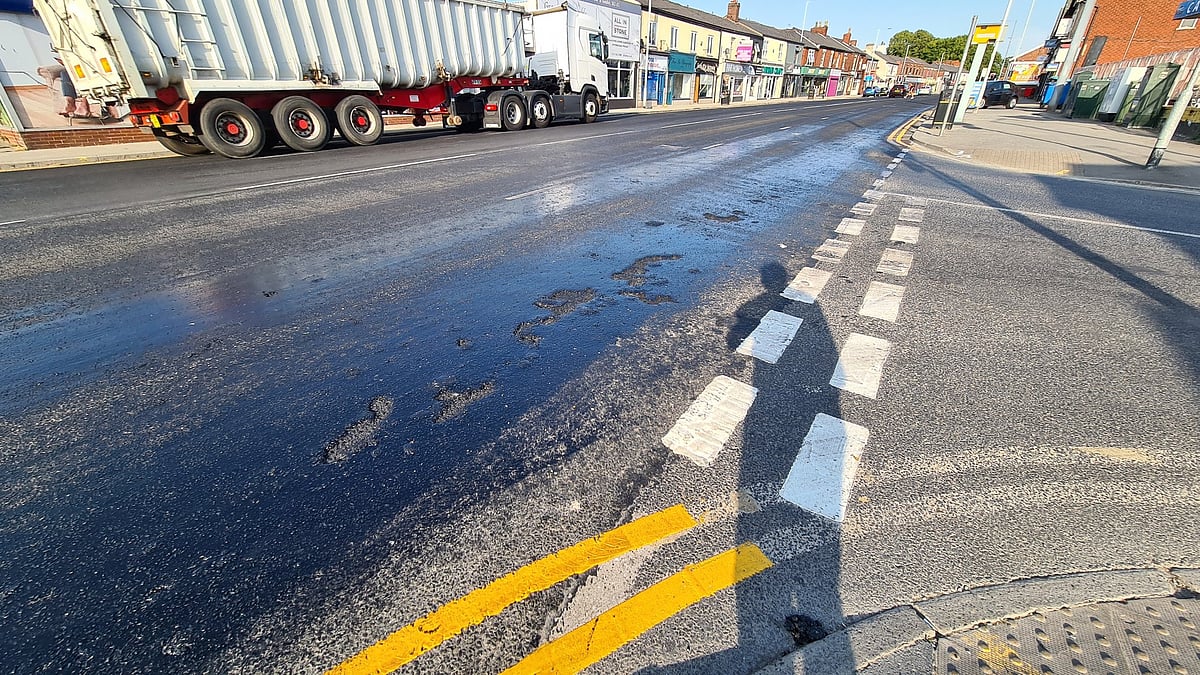Cooler weather returned to the United Kingdom Wednesday, one day after a historic and unprecedented heat wave sent temperatures to levels never before seen in the country.
At least 13 people have died in Britain while swimming during a spell of record-breaking hot weather that sparked wildfires, damaged train tracks and triggered warnings that efforts to tackle climate change needed to be stepped up.
The London Fire Brigade endured its busiest day since World War Two on Tuesday when temperatures topped 40C for the first time, igniting fires that destroyed dozens of properties in the capital and torched tinderbox-dry grassland at the sides of railway tracks and roads.
At one point on Monday, two airport runways were forced to close due to damage to the surface. Power companies faced outages as the heat scorched their equipment, many schools closed early and zoos struggled to keep pets cool.
Melting roads
The heat was so intense that even roads were melting.
In Stockport town in Manchester, a busy street was virtually liquified earlier this week, Manchester Evening News reported.
A witness told the newspaper that it sounded like cars were passing through puddles. Another resident said, "It was that soft your feet got stuck in it if you walked across. The tarmac was all stuck in the treads of my tyres."
The UK's Road Surface Treatment Association says temperatures have to hit 50 degrees Celsius for roads to melt.
"However, even a sunny day in the 20Cs can be enough to generate 50C on the ground as the dark asphalt road surface absorbs a lot of heat and this builds up during the day with the hottest period between noon and 5pm," it adds.
Tech companies forced to switch off computers
As record temperatures hit much of the UK on Tuesday, tech giants Google and Oracle suffered outages as cooling systems failed at London data centres, reported the BBC.
Data centres are large highly secure buildings that hold banks of computers and are the powerhouses behind many online services. But the concentrated computing power generates heat so powerful that cooling is essential.
Both companies say the problems have now been resolved.
For first time, 40 degrees
The U.K. surpassed 40 degrees celsius for the first time on record Tuesday when a temperature of 40.2 C was observed at London's Heathrow Airport.
That high was eclipsed a short time later farther north in the village of Coningsby, England, when the temperature hit 40.3 C, according to the U.K. Met Office, the country's official weather service.
The record was initially set Tuesday in the village of Charlwood, England, located in the southeastern part of the country, when the temperature reached 39.1 C.
The previous all-time record in the U.K. prior to Tuesday was established three years ago when a temperature of 102 F (38.7 C) was recorded in Cambridge Botanic Garden on July 25, 2019. At least 34 total observation sites climbed higher than the 2019 record by late Tuesday afternoon, according to the UK Met Office.
Why is this happening?
In Europe, a strong ridge of high pressure has allowed temperatures to build over the continent for the past several days. On Tuesday, an area of low pressure was moving in off the coast, acting to help funnel the extreme heat northward into the UK.
The UK Met Office's chief scientist, Stephen Belcher, was in a state of disbelief as he delivered a video statement about the shocking temperatures the country experienced Tuesday, noting they would have been "virtually impossible" the UK in an "undisrupted climate."
"But climate change driven by greenhouse gases have made these temperatures possible, and we're actually seeing that possibility now," he said, adding that if the world keeps emitting greenhouse gases at the level it is now, such heat waves are likely to occur there every three years.










